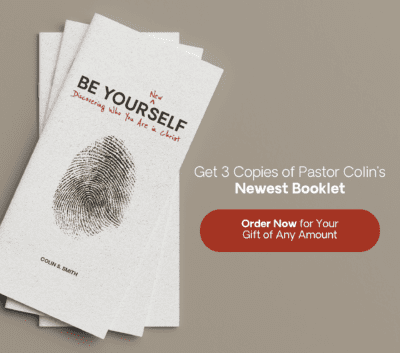One summer between college semesters, I wrote for a company that created dozens of websites offering an ever-flowing amount of niche content. I worked mostly with one specific site all about casseroles. I’m not exaggerating when I say I spent eight hours a day, five days a week, writing 100-word reviews of casseroles, chicken bakes, and goulashes.
In this environment, our motto for success was simply this: Content is king. This phrase was supposedly first said by Bill Gates in the late nineties. It means you were successful as an online writer in as much as you were producing content. We did not measure success by quality of post, but quantity.
I do not wish to criticize the work of this company—I learned many good things about writing there. Nor do I wish to criticize the work of any content writer or editor working online (like myself). What I wish to say is this: By working in this content-driven environment, I learned the importance of regularly stepping away from content generation, away from new words, to reflect on the words most important to me.
I needed to return to God’s Word throughout my day so I could replace content with Christ as the king over my life.
Unprecedented Availability of Words
Author and teacher Marilyn Chandler McEntyre once wrote, “The sheer availability of words—written, spoken, sung—is historically unprecedented” (3). And she wrote that in 2004. Since then that availability of words for us has only increased.
Because they hear so many words so constantly, their capacities to savor words—to pause over them, ponder them, reflect upon them, hear the echoes of ancient cadences, and attune themselves to illusiveness and alliteration—are eroding. (19)
And, of course, what’s really at stake here is not so much a vague, artistic nostalgia for the subjective beauty of words but the ability to know the objective beauty some words point to.
If I’m honest, the “unprecedented availability of words” burdens me. I feel a burden to consume newness —new stories, new articles, new ideas. I mistakenly think value is located exclusively within novelty. I’m tempted to think less of something if I have read it before.
Novelty
I am so thankful for Abigail Dodds’s book, (A)Typical Woman, for many reasons. One of them being this great paragraph:
So many are searching for a novel approach, a new way to think about something, a uniqueness or niche. But if you live long enough, you realize that novelty isn’t a virtue… In the world of ideas, it’s often just dressed-up ignorance of all the bad ideas that have already been tried… I’m looking for something fixed and dependable. I find it in God and his Word, the only way you can be made new by an unchanging God and his ancient book. (14)
This quote so perfectly calls out the foolishness of striving for novelty. What I think of as new and exciting is usually less a statement about the thing itself and more a statement of my own ignorance of the past. In sum, newness is a poor indicator of value.
In reading these quotes from Dodds and from McEntrye, I can’t help but think about this line from Shakespeare’s Hamlet. During Act two, scene two, Hamlet is reading a book, and when asked, “What are you reading?”, the famously mad Hamlet responds:
Words, words, words. (l. 183)
He is saying the book doesn’t matter. It’s meaningless. It’s completely unrelated to what’s important.
A Normal Day
How much of my day is spent consuming unimportant “words, words, words”?
Most days I have the discipline to read Scripture for 30 minutes in the morning. I spend the next hour writing words of my own. Then, after getting ready for the day, I listen to FM radio during my 40-minute commute to work. Throughout my work day, I am usually listening to podcasts and radio broadcasts on a variety of topics. I then listen to the radio again on my commute home, and I spend many of my evenings watching Netflix.
I’m not interested in categorizing any of the above activities as good or bad. I only mean to highlight the amount of content I consume on a normal day. And it makes me wonder—are those thirty minutes of Bible reading at the beginning of my day working in my heart by the end of it?
“What the Word of God Produces”
In his sermon, “The Word of God,” Pastor Colin writes a few things that God’s Word produces in us:
- Strength against temptation
- Effectiveness in prayer
- Growth in wisdom and discernment
- Usefulness to others
- Increased joy and thanksgiving
All of these happen when the spirit works in us as we faithfully read the Bible, and all of these are a part of God’s promise to us. Isaiah 26:3-4 says:
You keep him in perfect peace
whose mind is stayed on you,
because he trusts in you.
Trust in the Lord forever,
for the Lord God is an everlasting rock.
When we read, reflect, and meditate on God’s word we have peace. We have peace because we can fend off temptation, and peace because Scripture moves us and prepares us for prayer. We have peace because God’s Word grants us wisdom and discernment to know God’s will for us. And, we have peace in relationships
But what happens to that peace when we consume a million other words throughout our day. Particularly, what happens when we fill our day with content that speaks a different gospel than the Gospel of Jesus?
As Dodds points out, if we are constantly looking to new sources, then we’ll miss the only thing that has the power to transform our lives: God’s unchanging Word.
Christ is King
I do not want my day living under the lordship of content; instead, I want to live under the lordship of Christ. I do not want to spend my time worshipping “words, words, words” like a madman, I want the peace and everlasting joy that comes from worshipping the one true Word (John 1:1).
This does not mean that I should never listen to music or podcasts, but it does mean I should consider very carefully how the content I consume. I should be careful and discerning toward the words I fill my mind with to ensure that they do not erode my relationship with Christ. I want to live my life not under the motto content is king, but Christ is king.


